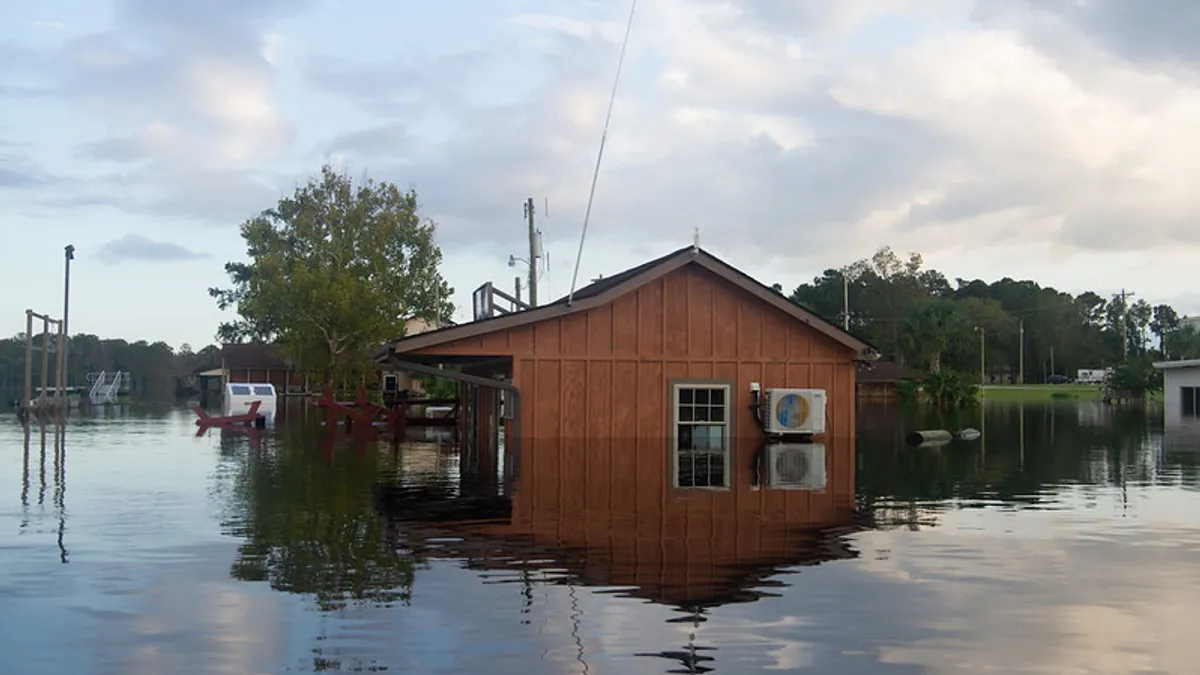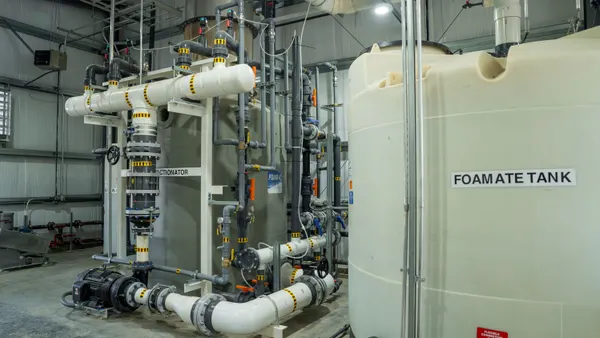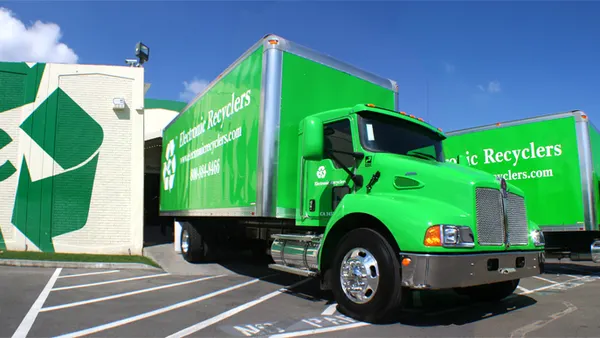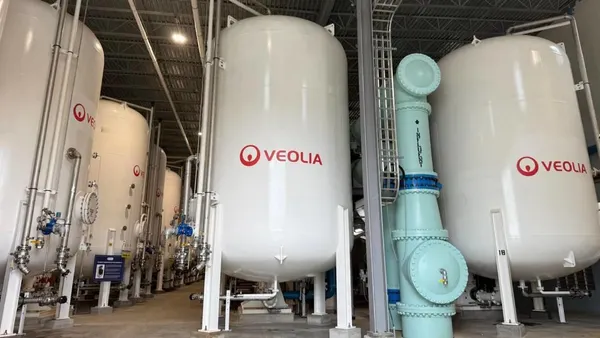Dive Brief:
- A group of multinational corporations — including Apple, Walmart and Unilever — and small to medium enterprises such as Vanguard Renewables and Sims Limited, have signed a letter urging the Biden administration to pursue an ambitious federal climate target, or national determined contribution (NDC), that will reduce greenhouse gas (GHG) emissions at least 50% below 2005 levels by 2030.
- Led by the "We Mean Business" coalition and nonprofit sustainability advocacy group Ceres, the companies that signed the letter each have business operations in the U.S. and share the goal to halve emissions over the next decade to help the country reach net zero emissions by 2050.
- The CEOs of investor groups CDP, Ceres and Principles for Responsible Investment also signed a second open letter that urges the Biden administration and Congress to pursue strong federal climate actions, particularly as the Federal Reserve has identified climate change as a "systemic risk to the stability of the U.S. financial system," the letter states.
Dive Insight:
The letters come in anticipation of the Biden administration announcing the country’s NDC ahead of the "Leaders Summit on Climate," which starts April 22.
Leading corporations play a vital role in helping cities reduce GHG emissions, said Ceres Vice President of Government Relations Anne Kelly. "Emissions reductions have to be a team sport," she said.
"If you raise the bar on our national ambition, we will raise our own ambition to move the U.S. forward on this journey. While an effective national climate strategy will require all of us, you alone can set the course by swiftly establishing a bold U.S. 2030 target," the letter to President Joe Biden states.
Major companies including Amazon, Microsoft and Uber have already set ambitious goals to reach net zero emissions or negative emissions. Kelly named some factors that incentivize corporations to make such commitments, such as cost certainty to avoid the volatility that can come with the use of fossil fuels; pressure from investors, employees or customers; and climate change’s threat to the very companies dependent on certain resources, like coffee or cotton.
While those incentives have helped companies work toward ambitious climate targets, the Biden administration is also looking to set requirements for public companies to disclose their emission levels and climate risks. Without such a mandate, inconsistent disclosures could remain an obstacle to companies achieving their climate goals, S&P Market Intelligence reports. Cities have also faced similar challenges with inconsistent emissions reporting across regions.
Climate efforts from companies and local governments will likely only continue to grow. The U.S. experienced 22 extreme weather events last year alone, according to the White House. Those events cost more than $1 billion each or $100 billion overall. Hurricane Laura in Louisiana, for example, cost $19 billion in damage to local water, electric and other systems.
Following the release of its $2.3 trillion American Jobs Plan, the White House released a state-by-state look at the scope of regional infrastructure, including the local costs brought by extreme weather.
Biden's home state of Delaware, for example, received a D grade for its infrastructure. The state experienced 10 extreme weather events from 2010 to 2020, according to the report, costing up to $2 billion in damages. As a result, the president is calling for $50 billion to improve the resilience of the state’s infrastructure, with similar calls for investments made throughout the country.












